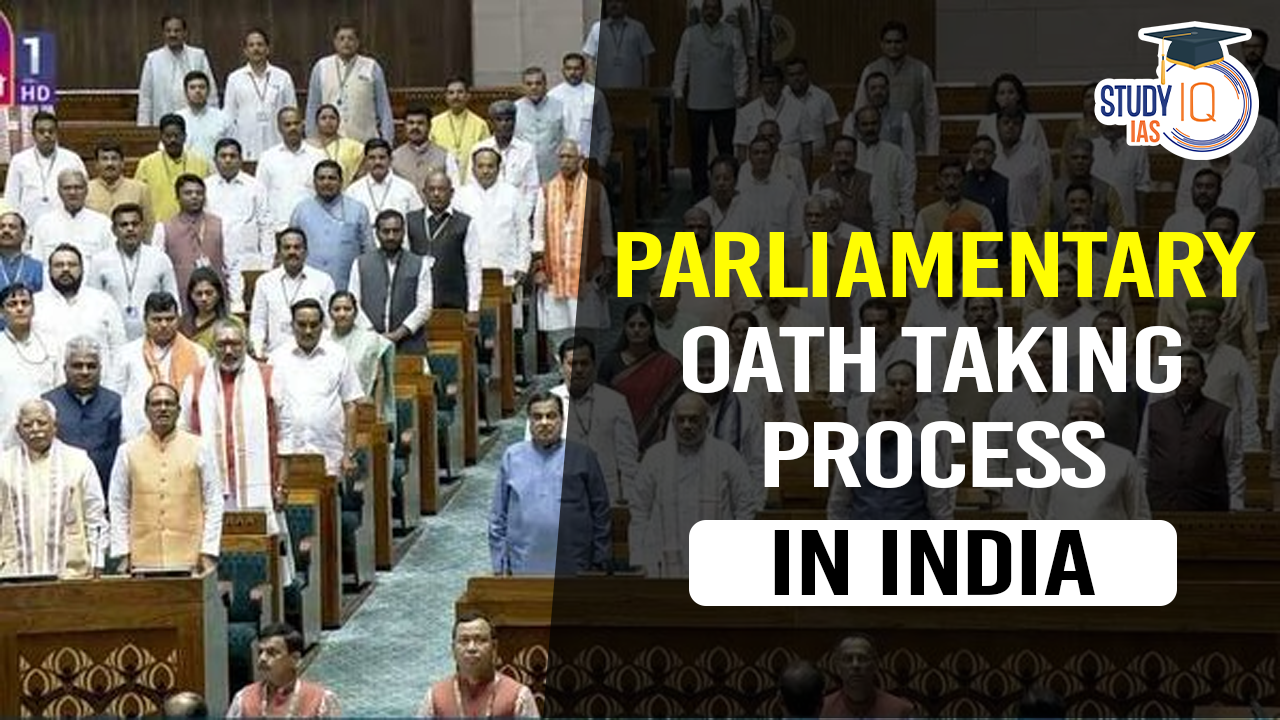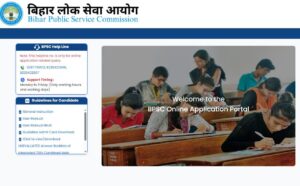Table of Contents
Context: The first session of the 18th Lok Sabha is set to commence soon. Before the House can begin its legislative functioning, the newly elected members must take the oath of Members of Parliament (MP), as provided in the Constitution.
Parliamentary Oath-Taking Process for Indian MPs
The oath-taking ceremony typically happens soon after the election results are declared.
Term of an MP
- Start of Term: The five-year term begins when the Election Commission of India (ECI) declares the results, according to Section 73 of the Representation of the People Act, 1951. For the 2024 general elections, results were declared on June 6.
- Rights and Responsibilities: MPs start receiving salary and allowances from the date of ECI notification. The start of their term also activates anti-defection laws.
Order of Oaths
- Members who have been appointed as leaders (House leader, Opposition leader) might be called first.
- Other members are called state-wise, alphabetically within each state.
- MPs who miss the first round can take the oath on subsequent sitting days.
Significance of the Parliamentary Oath
- Participation in Proceedings: MPs must take the parliamentary oath to participate in debates and vote in the Lok Sabha.
- Constitutional Requirements: The oath or affirmation is prescribed in the Constitution (Article 99), with a financial penalty of Rs 500 for participating in proceedings without taking the oath (Article 104).
- Ministerial Exception: An individual can become a minister without being elected to Parliament and has six months to secure a seat in either Lok Sabha or Rajya Sabha. During this period, they can participate but not vote in House proceedings.
Parliamentary Oath Text
- Prescribed in the Constitution’s Third Schedule
- Includes allegiance to the Constitution, upholding India’s sovereignty and integrity
Evolution of the Oath
- Initially did not invoke God
- Amendments during Constituent Assembly debates added reference to God
- Constitution (Sixteenth Amendment) Act, 1963 added upholding India’s sovereignty and integrity
Oath-Taking Process
- MPs must submit election certificates to Lok Sabha staff
- Can take oath in English or any of 22 specified languages
- About half take oath in Hindi or English
- Sanskrit popular: 44 MPs in 2019, 39 in 2014
- Must use the name on election certificate
- The personal choice between oath (in God’s name) and affirmation
- In the 2019 Lok Sabha, 87% swore in God’s name, 13% affirmed
Notable Incidents
- 1957: Mentally unsound individual posed as MP and took oath
- 2019: Sadhvi Pragya Singh Thakur added suffix to name (ruled out)
- 2024: Swati Maliwal added “Inquilab Zindabad” (asked to retake oath)
MPs in Jail
- Can take oath to avoid seat being declared vacant after 60 days
- Example: Atul Kumar Singh (Ghosi MP) took oath in January 2020 while in jail
Oath/Affirmation
The Presiding Officer administers the oath/affirmation. Here’s the text:
“I, [Name of Member], do solemnly affirm (or swear) in the name of God (or I do solemnly affirm) that I will bear true faith and allegiance to the Constitution of India as by law established, that I will uphold the sovereignty and integrity of India and that I will faithfully discharge the duty upon which I am entering.” [Source: Third Schedule, Constitution of India]
| Note |
| MPs must use the name on their election certificate and adhere to the exact wording. |


 Bihar BPSC 70th Mains Result 2025 Out: C...
Bihar BPSC 70th Mains Result 2025 Out: C...
 Pax Silica Initiative: Meaning, Objectiv...
Pax Silica Initiative: Meaning, Objectiv...
 Tapanuli Orangutan: Habitat, Characteris...
Tapanuli Orangutan: Habitat, Characteris...

























